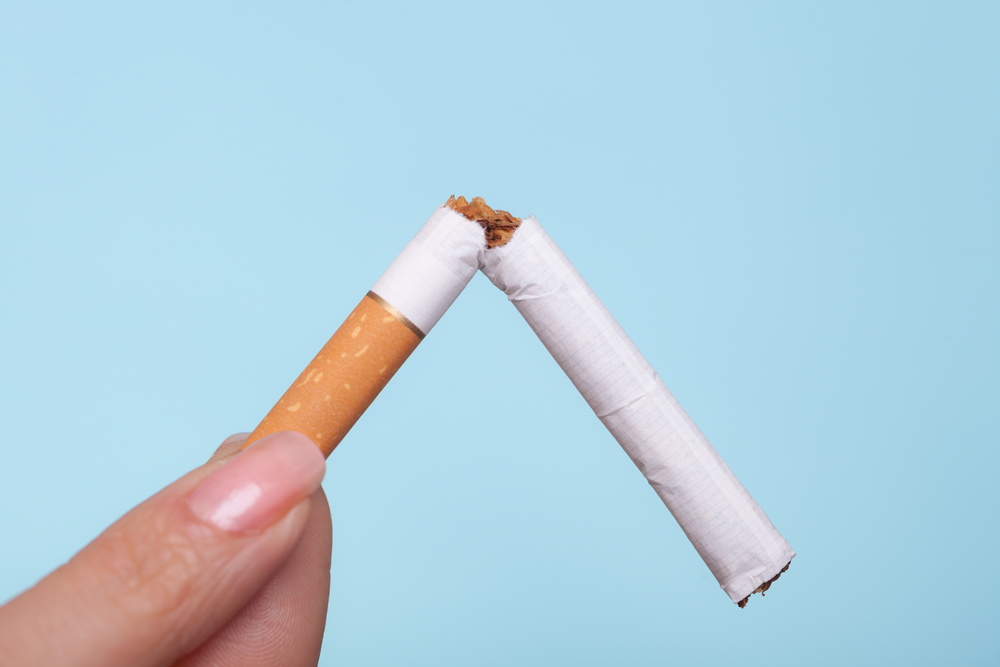 Most ex-smokers will tell you that one of the hardest things that they had to do in their lives was quit. Almost all of us know that smoking is bad for our health, but nearly 1 in 5 Americans smoke. Across the globe, that number goes up to 21%. Smoking increases the risk of cardiovascular disease, hypertension, and a number of other chronic conditions. The Hope4Cancer® Institute and other cancer clinics will tell you that smoking raises the risk of many different cancers as well. Moreover, according to the World Health Organization, six million people die each year from the effects of smoking. This includes 5 million who will die from direct tobacco use while more than 600,000 who die are nonsmokers who succumb to second-hand smoke exposure. Nearly half of all people who smoke will die from a smoking-related disease.
Most ex-smokers will tell you that one of the hardest things that they had to do in their lives was quit. Almost all of us know that smoking is bad for our health, but nearly 1 in 5 Americans smoke. Across the globe, that number goes up to 21%. Smoking increases the risk of cardiovascular disease, hypertension, and a number of other chronic conditions. The Hope4Cancer® Institute and other cancer clinics will tell you that smoking raises the risk of many different cancers as well. Moreover, according to the World Health Organization, six million people die each year from the effects of smoking. This includes 5 million who will die from direct tobacco use while more than 600,000 who die are nonsmokers who succumb to second-hand smoke exposure. Nearly half of all people who smoke will die from a smoking-related disease.
Why Is It So Hard to Quit Smoking?
Nicotine is a highly addictive drug. Cancer.org states that nicotine is actually as addictive as other serious drugs like heroin and cocaine. When you smoke, you inhale nicotine, and it gets absorbed into your bloodstream much quicker than if it was taken by IV. The nicotine affects your heart rate and can improve mood and alleviate stress. However, these pleasures are short-lived, and the smoker will build a tolerance to nicotine. Therefore, he or she will require more nicotine to get the same effects as when he or she first started.
When you go through a period without nicotine, you may begin to experience withdrawal symptoms. Many people who relapse do so because of these unwelcome physical and psychological symptoms. Common symptoms of withdrawal include irritation, anxiety, nausea, shortness of breath, difficulty concentrating, flu-like symptoms, and others. These symptoms will usually go away in a few weeks, but your cravings may linger for a few months after that. It may be a good idea to speak with your physician before your quit date, so he or she can help you manage withdrawal symptoms.
Five Ways to Quit Smoking for Good
Withdrawal symptoms are not the only reason why people relapse. Many smokers use cigarettes as a stress release tool, so an adverse event may cause relapse. For others, smoking is so ingrained into their daily rituals that they don’t know how to live day to day without smoking. Here are several tips to help you mitigate these risks and increase your chances of quitting for good:
- A combination of phone hotline use and online cessation services can greatly improve a person’s chances of quitting.
- Set a quit date and tell your friends and family about it so they can support you and not smoke around you.
- Exercise more and practice other stress relief techniques.
- Cut back on caffeine and alcohol and other common triggers.
- Speak with a behavioral therapist who may be able to recommend lifestyle changes to improve the likelihood of complete cessation.
If you’re looking to quit, speak with a doctor, get support from your friends and family, and compile all of the tools you’ll need to help you succeed. While it may be difficult in the beginning, you may end up saving your life.
